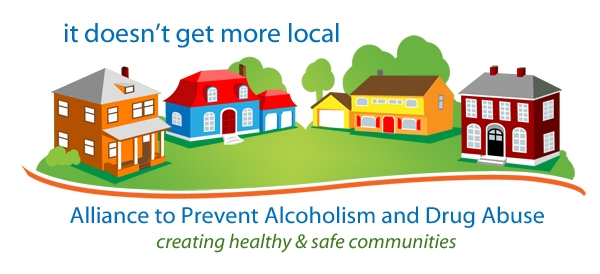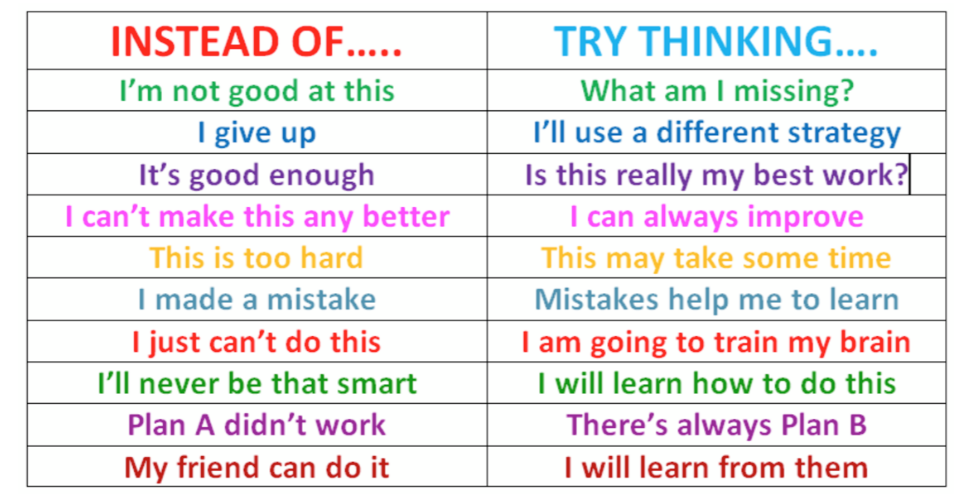Parenting is
hard, and good parenting is even harder.
Good parenting is parenting the child you have at this moment,
proactively exercising some basic parenting skills, while being positive and
supportive. Kids need structure and
limits. This may seem daunting, but these will become easier and smoother to
establish if you think them through ahead of time and base them on your family
values–what is most important to you. These limits may change as your family
and circumstances change; but as long as they are rooted in the values most
important to you, they will remain consistent.
It also really helps if you keep your ultimate objective in mind: a well-adjusted, independent, and resilient
adult. Maintaining a sense of humor (especially about yourself) and not
micro-managing your child’s life are also part of the recipe for good
parenting.
Your child’s
current social and emotional stage determines how they feels, thinks and
interacts with others. So not only is each child unique, but each child changes
almost daily as they pass through the various developmental stages on their way
to adulthood. This means that you, the
parent, also have to change almost daily, adjusting your approach based on
where your child is today, and don’t forget that social and emotional
development don’t always synch up with intellectual (or physical!) development.
And if that isn’t enough of a challenge, how you communicate within your family
is also critical.
We believe
that there are four foundational skills that will help you become the best
parent you can be. These are: active listening, giving effective instructions
or commands, pick your spot and firm and giving meaningful consequences.
Scroll down to the end of the article to see 4 Key Parenting Skills. More detailed information can be found in the Ages and Stages under Topics for Parents on our main menu.
Throughout this article there are links to more in-depth
information. In addition, on the spenj.org website the menu Topics for Parents provides a deeper
dive. Our Resources for Parents
emphasizes organizations local to Essex County, NJ, but there are many other
links to websites and organizations that help support good parenting.
Here’s a quick take on a child’s social, emotional and
intellectual development:
Early Childhood is
a time when children have become mobile and are actively exploring their
environment. Children at this stage experience rapid physical and intellectual
development. “Emotional regulation” can be challenging as a child learns to
modulate their emotional expression, discover their independent nature, and
learn that they can say “No.” Over time, with help, the child also learns how
to accept being told “No”.
Throughout the elementary school years is when children reach an understanding of the physical dimensions of the world and develop an accurate perception of events; they are capable of rational, logical thinking and are able to understand right and wrong, but they will say and do things to avoid punishment.
In the middle school years, children identify much more with their peers, while distancing themselves from their parents and families. They are hyper-aware of their appearance and are very self-conscious about it as social acceptance depends on conformity to the norms of their peer group. While they are beginning to be able to think abstractly and logically and are able to consider the consequences of thoughts and actions without experiencing them, they are not yet able to apply these mental processes to themselves.
During the high
school years and young adulthood, each teen forms their own identity. They examine the values, beliefs and
behaviors of others, organizing those perceptions into a coherent world view
for themselves, sometimes at odds with that of their families.
They are capable of systematic problem solving, able to consider multiple solutions and plan a course of action for themselves. However, reasoning skills are the last part of brain development (often not completed until the mid to late 20s) to occur. This means that they may behave in reactive, impulsive or novel ways, since their brain’s decision-making structure is still under construction. This means that they often cannot explain or understand their own actions. This development doesn’t magically end at age 18. Social, emotional and brain development continues well into the 20s.
Life lessons often come in unexpected places. While you
don’t want to obsess about all of your patenting choices, how you interact with
your child, how you behave out in the world, the choices you make about books,
television and other media as well as your expectations for your child,
yourself and other people all contribute to the person your child will develop
into.
Don’t feel burdened by this. Think creatively. Teachable
moments happen all the time. Remember that you are always on stage for them. Stopping
to let another driver turn, interacting politely with the cashier in the
grocery story, volunteering at a soup kitchen, being conscientious about
recycling… are these actions are observed and absorbed. Speak to your child as you want them to talk
to others. Please and thank you matter. Don’t be afraid to admit that you have
made a mistake and apologize.
There are teachable moments in the everyday. Use yourself as an example, both good and in
the needs-improvement category. Find
stories, books and electronic media that model for your children ways that you
want them to be in the world, that show children of different genders
challenging gender roles, that show diverse faces and bodies, that show
families of all different make-ups.
Beginning in elementary school, help them develop sense of
right and wrong, both through conversation and action. Talk about respecting
others, and what to do when others are not kind or respectful to them. Talk to
your kids about being a global citizen and what this means.
As your maturing child engages with the outside world, talk
about the news and issues that you are hearing about or that family members are
involved with. Listen to what your teen is saying. Use open ended questions to
try to get them to open up. You can even choose family movie night selections
that might start a conversation. Be honest about what you believe and why and
why you want them to do (or not do) something.
All along the way, find ways to act on your beliefs, with or
without your child.
Remember that you are always on stage for them. Swearing at
another driver, using your cell phone in the car, volunteering at a soup
kitchen, getting involved in politics, being conscientious about recycling are
all absorbed. Talk to your kids about being a global citizen and what this
means. Don’t be afraid to use yourself
as an example whether of what’s happening in your day to day life now or of
when you were growing up.
Sometimes it may seem that your teen rejects all of your
“good advice”, but give it time. It may take 3, 5 or 10 years, but there is a
good chance that they will do you proud.
4 Key Parenting
Skills
Active Listening
It’s easy to miss out on the important things
when you are busy getting your family’s dinner on the table, helping with
homework or making sure your child has what they need for their
extra-curricular activity. At times, children are telling us things and we just
go through the motions of hearing, but we’re not really listening. When this
occurs, we can miss little cues that tell us how they are doing and how they
are feeling.
Giving Effective Instructions or Commands
Effective instructions or commands are specific and direct. They are given face-to-face, and after giving them, the parent remains in charge. Ineffective commands are broad, vague, yelled from another room, and cede control to the child. Rather than asking your child to tidy up the kitchen, tell them to put their dishes in the dishwasher. It is important to make sure that you have your child’s attention when you give the command. Ineffective commands are phrased as a question: “Do you want to take out the garbage?” What do you do when your child says no? You are then stuck, having ceded power to your child.
Pick Your Spot
It is important to know your limits (what you will and will not accept) and stick to them. Typically, your child will push those limits in predictable ways in routine situations. Ahead of time – before you get into one of those situations – know what your limit is going to be.
Giving Meaningful Consequences
When giving consequences it’s important to be
fair, firm and consistent. Try to give
the consequence in a friendly manner; you are enforcing consequences for a
behavior or action. Ideally, we want to
reinforce desired behaviors in order to prevent undesired ones. You want to support the child being good much
more than you want to punish an undesired behavior. If you see your child playing nicely with a
younger sibling, praise them for doing so and reinforce the good behavior. Don’t wait for them to lash out when their
younger sibling disrupts their play and then give a consequence such as a time
out.
Communicate clear rules and expectations so your
child know what to expect in advance. In all cases, you want to name the
behavior to help make things clear, both in the moment and later, when you’re
talking about what happened. It’s also helpful to have a menu of reasonable
consequences ready in advance so that you’re not scrambling at the last moment
to come up with something and then possibly overreacting. Also remember to keep
your expectations and consequences age-appropriate.
Don’t
Forget to Take Care of Yourself
It is all too easy, when juggling the demands you face as a parent, to put taking care of yourself at the bottom of your to-do list. We think that’s bad! To be a positive and effective parent you must make sure to take care of yourself (and your relationships) too. Effective self-care requires that you know yourself, your own limits and needs. Before you can help someone else, you have to take care of yourself; this is not selfish. Just like on an airplane – you have to put on your own oxygen mask before you can help those around you. You have to make the time for self-care, not find the time. Plan ahead and create the time slot in your busy schedule, so that you know that you have time to take care of yourself and your partner. This is an example of integrating your priorities into your daily life.
By taking care of yourself, you become better equipped to
care for your family. Keeping all of the parenting balls in the air at once
isn’t always easy and practicing self-care makes that juggling more do-able.
And by making self-care and mindful practices part of your own coping tool-kit,
they become part of your family’s routine.
Know too that there are resources to support your parenting.
On the spenj.org website are in-depth discussions of these and other topics of
interest to parents, a resource guide linking to organizations and information
available online, and information about the parenting workshops we run that
help parents put these skills into practice.
Sometimes reading something new or getting insight into
children’s developmental stages is will help you “up your parenting game.” Our
goal is to provide you with the understanding and tools you need to parent your
children so that they grow to be independent and resilient adults.




